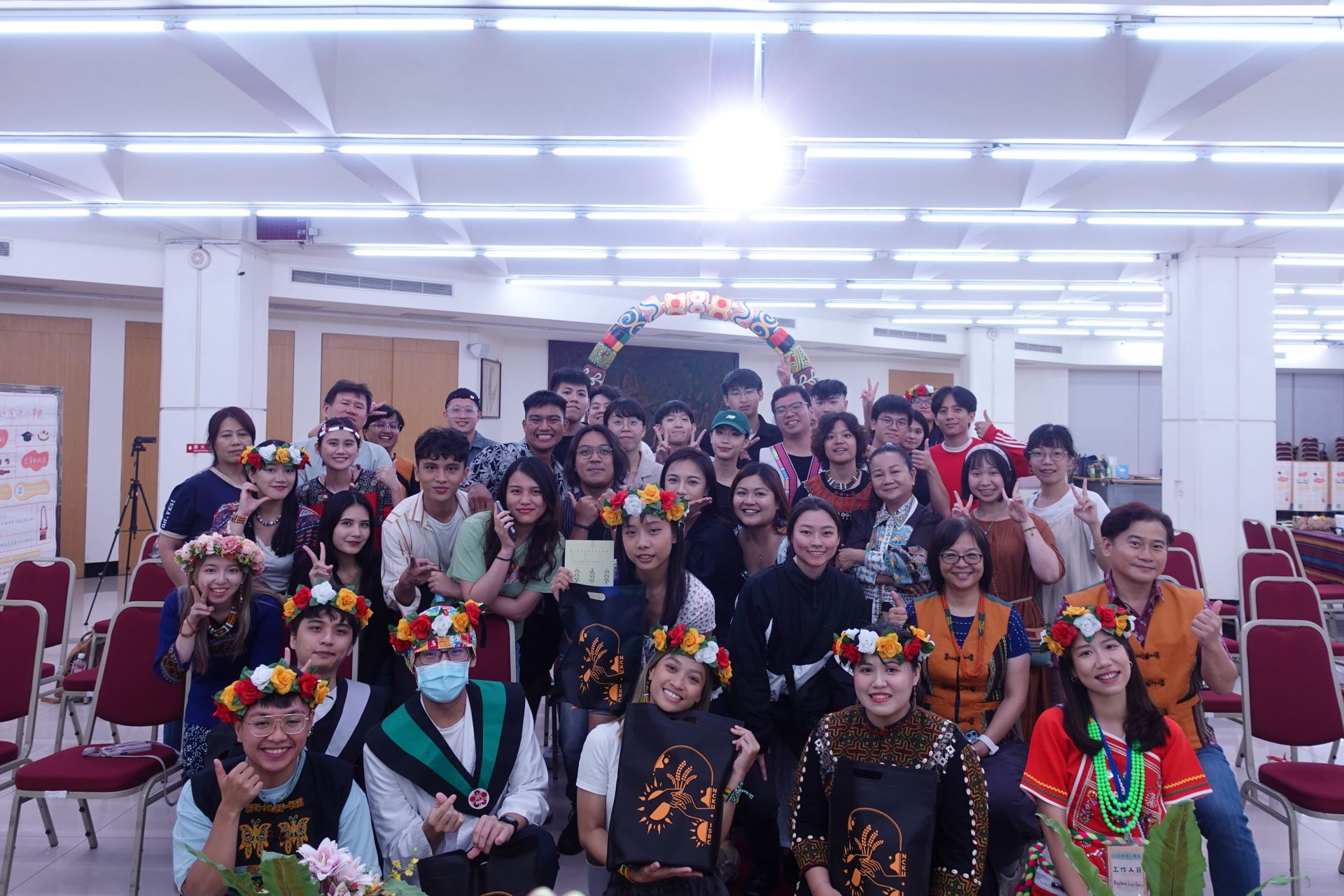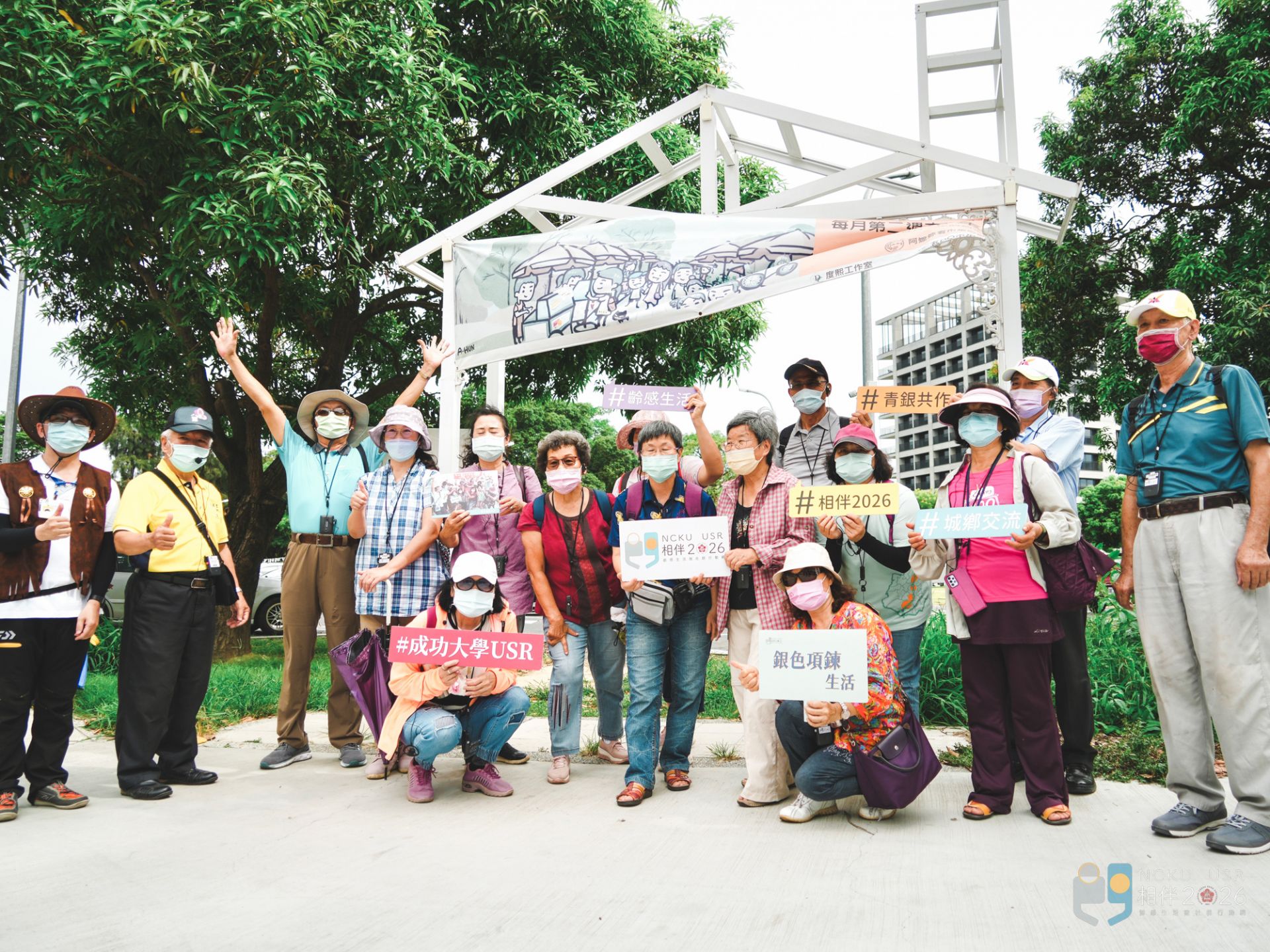SDG10
NCKU's "Accompanying 2026" USR Project: Finding Value and Happiness for the Elderly, Constructing a Society of Mutual Prosperity
Taiwan is about to enter an ultra-aged society, and constructing a healthy aging society requires consideration of the interaction between the elderly and other age groups. From 2020 to 2022, the NCKU's Center for the Humanities and Social Sciences implemented the "Accompanying 2026: Age-sensitive Lifestyle Micro-community Action Network" University Social Responsibility (USR) project, establishing micro-communities in communities to develop a "positive aging lifestyle" through intergenerational learning and creation, enhancing the elderly's sense of self-worth and happiness. The new phase of the "Accompanying 2026: Mutual Subjectivity, Mutual Benefit, and Cultural Resurgence" project has begun, with young people continuing to engage deeply in the community, integrating positive aging lifestyles with the experiences of the elderly, environmental changes, and historical developments to construct an aging society where youth and the elderly thrive together.
During the 2020 to 2022 "Accompanying 2026" project, the NCKU team introduced students or interested young people to participate in the USR project through course arrangements and research planning. Thirteen "micro-communities'' were promoted in communities such as Jingpu Village and Linfeng Community in Liujia District, Longtian Community, Longben Village, and Du Ba Village in Guantian District, Nanmei Village in West Central District, Guoping Community in Anping District, and Changsheng Village, Zhenxing Village, Renai Village, and Chongxing Village in North District, to develop aging activities and intergenerational cooperation, allowing the elderly and young people to support each other. The results were socially recognized, receiving the "Local Integration Model Award'' from Global Views Magazine's USR in 2022, the "SDG 3 Health and Well-being Gold Award" from TSAA Taiwan Sustainable Action Awards, and the PwC Sustainable Impact Award.
Professor Yuk-Ying Tung, the project leader of "Accompanying 2026: Age-sensitive Lifestyle Micro-community Action Network" and the Department of Education at NCKU, stated that assisting the elderly in finding a sense of value and happiness is the key. The team established micro-communities of around 10 elderly people in the community, with young people assisting in planning and participating in various activities, including inviting the elderly to share life stories or local stories, young people helping to create picture books; or asking the elderly to teach young people handicraft knitting, young people amazed by the exquisite craftsmanship of the elderly, and intergenerational participation in market exhibitions. These cross-generational activities made the elderly feel valued, and young people learned a lot from the elderly's experiences and different modes of thinking, becoming more tolerant and considerate of each other.
In addition to organizing activities in the community, the team also promoted cross-city and rural exchanges of micro-communities through the "Silver Necklace" project, using the Taiwan Railway as the main transportation method to connect several urban and rural stations, arranging for the elderly to visit cities from rural areas and cities to enter villages, visiting and experiencing different community environments, tasting local food, and feeling different lifestyles. The process of "movement" brought great joy to the elderly, and their physical and mental health improved.
Professor Tung revealed that many students initially participated in the USR for credits, but many of them gradually integrated into interacting with the elderly, often spending entire days in the community, thinking from the perspective of the elderly, and wanting to make the elderly happier and more energetic.
Ho, a graduate student in Architecture, shared that during her first year of graduate school, she was required to engage with the community for a USR course. Increased interaction with the elderly brought noticeable joy and vitality to the community. In her second year, she became an assistant for the USR course to deepen her understanding of aging issues. She emphasized that effective communication and interaction with all age groups are crucial for project recognition and smooth execution. This experience will serve as a solid foundation for future community redevelopment or public sector projects.
Xiao, a graduate student in Architecture, noted that before joining the USR project, her interactions with the elderly were limited, reflecting a common gap between young people and the elderly. Through the USR project, she not only improved her communication skills with the elderly but also developed a closer bond with them. Initially, the project involved collaborating with the community development association's volunteer group to organize intergenerational activities. Xiao discovered that the elderly desired changes in their lives and that joyful young people could bring new possibilities. As Taiwan approaches an ultra-aged society, Xiao emphasized the importance of addressing physical and mental aging collaboratively. She now thinks about managing elderly care at home and hopes to give back to the community.
The "Accompanying 2026: Age-sensitive Lifestyle Micro-community Action Network" has gained significant recognition by adhering to a "locally driven" principle. Professor Tung explained that the community initially doubted the project's benefits and its sustainability. The team focused on understanding local needs before execution and provided additional support during the process, introducing other resources as needed. This genuine dedication has earned local recognition, support, and cooperation, ensuring the project's successful implementation and sustainability.
The new phase of the "Accompanying 2026: Mutual Subjectivity, Mutual Benefit, and Cultural Resurgence" project will build on the previous micro-communities and cross-city and rural actions. Professor Tung, the project leader, emphasized the importance of sustainable development post-project. The team will integrate young people, official organizations, local elderly communities, and other groups, using technology to assist aging life and cross-group industry operations, aiming for sustainable local autonomy.
People's behavior and thinking are shaped by their environment, including physical and cultural factors. Improving the well-being of the elderly requires considering changes in their living environment and local historical context. The life experiences and skills of the elderly are valuable for developing new approaches to aging. Emphasizing history and culture is a key feature of the project's new phase, promoting cultural resurgence.
Professor Dong used Liujia and Guantian District as examples to illustrate how their historical features, such as ponds, irrigation ditches, and the Wushantou Reservoir, reflect Taiwan's ancestral roots. With a focus on positive aging, the elderly can share their life experiences and local cultural heritage with younger generations. By connecting with NCKU's "Exploring Tainan" program and utilizing online walking tours provided by technology companies, thematic electronic maps and digital storytelling collections can be created to promote sustainable rural travel experiences. Even after the USR team exits, these initiatives can continue to operate autonomously and develop.
During the 2020 to 2022 "Accompanying 2026" project, the NCKU team introduced students or interested young people to participate in the USR project through course arrangements and research planning. Thirteen "micro-communities'' were promoted in communities such as Jingpu Village and Linfeng Community in Liujia District, Longtian Community, Longben Village, and Du Ba Village in Guantian District, Nanmei Village in West Central District, Guoping Community in Anping District, and Changsheng Village, Zhenxing Village, Renai Village, and Chongxing Village in North District, to develop aging activities and intergenerational cooperation, allowing the elderly and young people to support each other. The results were socially recognized, receiving the "Local Integration Model Award'' from Global Views Magazine's USR in 2022, the "SDG 3 Health and Well-being Gold Award" from TSAA Taiwan Sustainable Action Awards, and the PwC Sustainable Impact Award.
Professor Yuk-Ying Tung, the project leader of "Accompanying 2026: Age-sensitive Lifestyle Micro-community Action Network" and the Department of Education at NCKU, stated that assisting the elderly in finding a sense of value and happiness is the key. The team established micro-communities of around 10 elderly people in the community, with young people assisting in planning and participating in various activities, including inviting the elderly to share life stories or local stories, young people helping to create picture books; or asking the elderly to teach young people handicraft knitting, young people amazed by the exquisite craftsmanship of the elderly, and intergenerational participation in market exhibitions. These cross-generational activities made the elderly feel valued, and young people learned a lot from the elderly's experiences and different modes of thinking, becoming more tolerant and considerate of each other.
In addition to organizing activities in the community, the team also promoted cross-city and rural exchanges of micro-communities through the "Silver Necklace" project, using the Taiwan Railway as the main transportation method to connect several urban and rural stations, arranging for the elderly to visit cities from rural areas and cities to enter villages, visiting and experiencing different community environments, tasting local food, and feeling different lifestyles. The process of "movement" brought great joy to the elderly, and their physical and mental health improved.
Professor Tung revealed that many students initially participated in the USR for credits, but many of them gradually integrated into interacting with the elderly, often spending entire days in the community, thinking from the perspective of the elderly, and wanting to make the elderly happier and more energetic.
Ho, a graduate student in Architecture, shared that during her first year of graduate school, she was required to engage with the community for a USR course. Increased interaction with the elderly brought noticeable joy and vitality to the community. In her second year, she became an assistant for the USR course to deepen her understanding of aging issues. She emphasized that effective communication and interaction with all age groups are crucial for project recognition and smooth execution. This experience will serve as a solid foundation for future community redevelopment or public sector projects.
Xiao, a graduate student in Architecture, noted that before joining the USR project, her interactions with the elderly were limited, reflecting a common gap between young people and the elderly. Through the USR project, she not only improved her communication skills with the elderly but also developed a closer bond with them. Initially, the project involved collaborating with the community development association's volunteer group to organize intergenerational activities. Xiao discovered that the elderly desired changes in their lives and that joyful young people could bring new possibilities. As Taiwan approaches an ultra-aged society, Xiao emphasized the importance of addressing physical and mental aging collaboratively. She now thinks about managing elderly care at home and hopes to give back to the community.
The "Accompanying 2026: Age-sensitive Lifestyle Micro-community Action Network" has gained significant recognition by adhering to a "locally driven" principle. Professor Tung explained that the community initially doubted the project's benefits and its sustainability. The team focused on understanding local needs before execution and provided additional support during the process, introducing other resources as needed. This genuine dedication has earned local recognition, support, and cooperation, ensuring the project's successful implementation and sustainability.
The new phase of the "Accompanying 2026: Mutual Subjectivity, Mutual Benefit, and Cultural Resurgence" project will build on the previous micro-communities and cross-city and rural actions. Professor Tung, the project leader, emphasized the importance of sustainable development post-project. The team will integrate young people, official organizations, local elderly communities, and other groups, using technology to assist aging life and cross-group industry operations, aiming for sustainable local autonomy.
People's behavior and thinking are shaped by their environment, including physical and cultural factors. Improving the well-being of the elderly requires considering changes in their living environment and local historical context. The life experiences and skills of the elderly are valuable for developing new approaches to aging. Emphasizing history and culture is a key feature of the project's new phase, promoting cultural resurgence.
Professor Dong used Liujia and Guantian District as examples to illustrate how their historical features, such as ponds, irrigation ditches, and the Wushantou Reservoir, reflect Taiwan's ancestral roots. With a focus on positive aging, the elderly can share their life experiences and local cultural heritage with younger generations. By connecting with NCKU's "Exploring Tainan" program and utilizing online walking tours provided by technology companies, thematic electronic maps and digital storytelling collections can be created to promote sustainable rural travel experiences. Even after the USR team exits, these initiatives can continue to operate autonomously and develop.
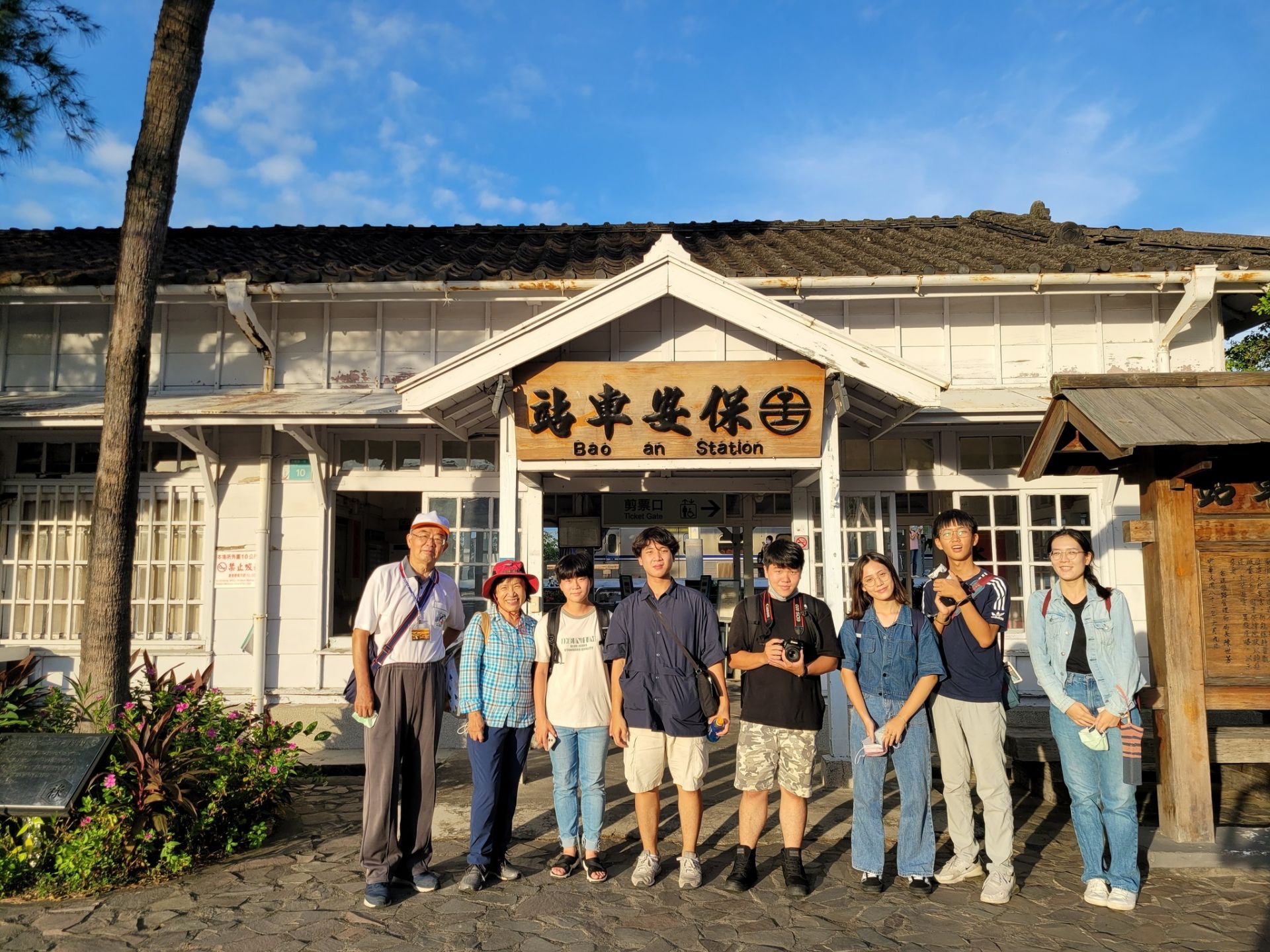
The Silver Necklace Project uses Taiwan Railways as the main mode of transportation, arranging for seniors to travel from the countryside to the city and from the city to the countryside.
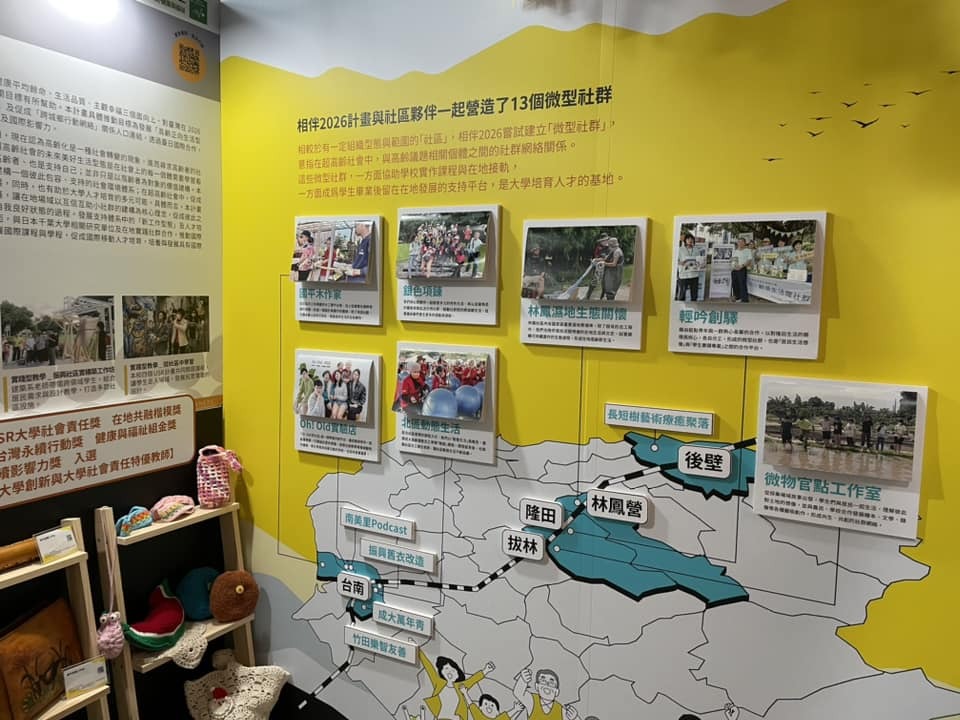
Accompany 2026 USR Project: Creating 13 Micro-communities in Collaboration with Community Partners.
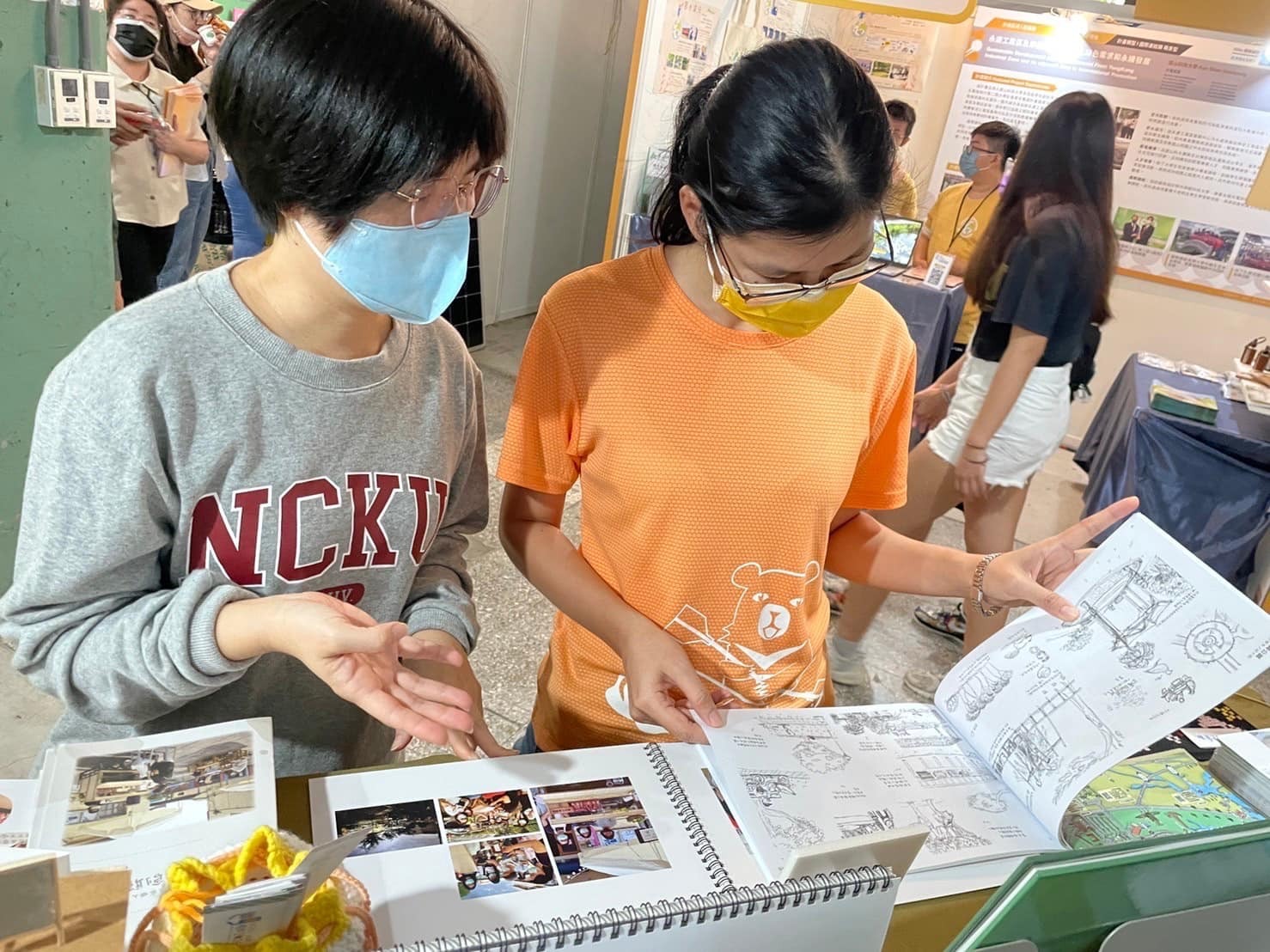
Through the results exhibition, showcase the efforts and achievements of the Accompany 2026 USR Project in an accessible and understandable way to the public.
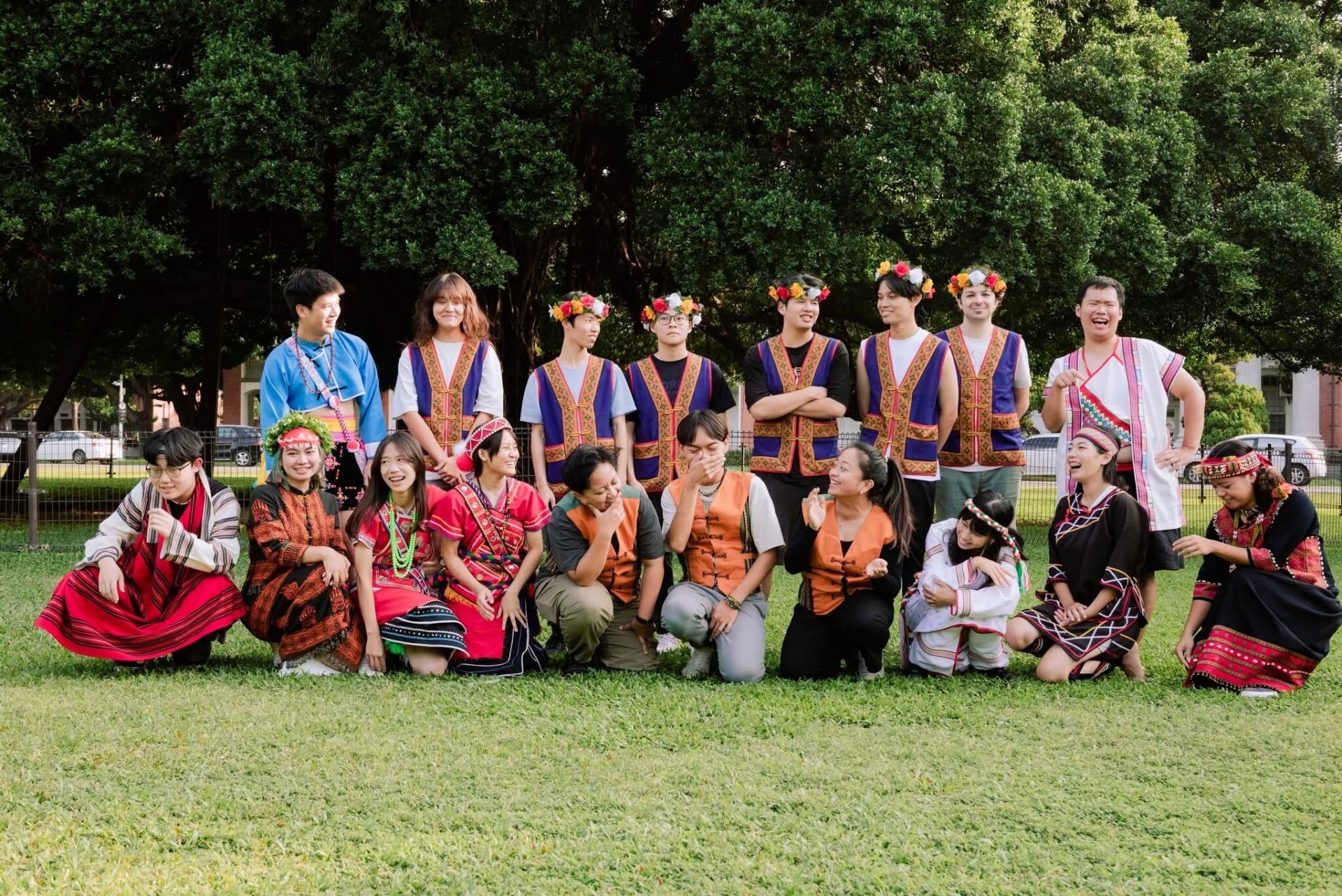
SDG10Promoting Cultural Equality and Educational Inclusivity: NCKU Introduces “Traditional Festival Leave” and “Multicultural Leave”
View more
SDG10NCKU Teacher Education Center’s Overseas Internship Program at the Taiwan School in Jakarta, Indonesia
View more